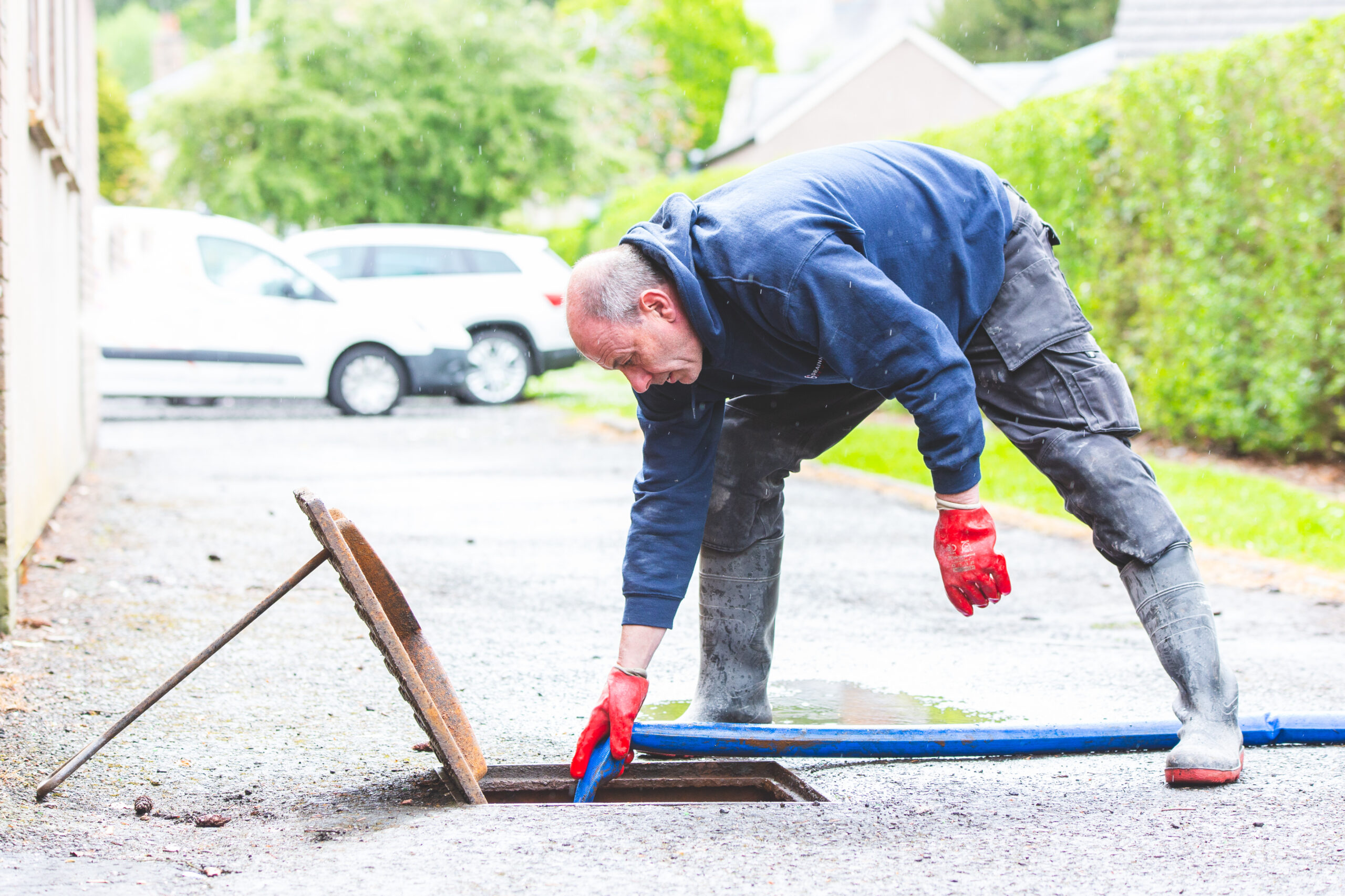Drain blockages are a common issue faced by homeowners across Scotland. From urban flats in Edinburgh to country cottages in the Highlands, blocked drains can disrupt daily life, lead to property damage, and incur unexpected repair costs. Understanding the primary causes of blocked drains is essential for prevention and long-term plumbing health.
In this guide, we explore the top culprits behind drain blockages in Scotland and share expert tips to keep your pipes flowing freely.
Why Are Drains Getting Blocked in Scotland?
Before diving into the details, it’s important to understand that many drain blockages stem from everyday habits. Improper disposal of waste, environmental factors, and ageing plumbing infrastructure are among the leading contributors. Below, we cover the most common offenders.
1. Fat, Oil, and Grease (FOG)
A Leading Cause of Blocked Kitchen Drains
One of the most persistent causes of blocked drains is the improper disposal of fat, oil, and grease. When poured down the sink, these substances cool and congeal, sticking to the insides of pipes. Over time, they attract other debris and form hard, stubborn clogs.
Prevention Tips:
- Never pour cooking oil or fat down the drain.
- Wipe greasy pans with kitchen roll before washing.
- Use grease traps or strainers to catch food particles.
2. Food Waste and Coffee Grounds
Common Kitchen Culprits
Even small bits of food can accumulate and cause serious blockages. Rice, pasta, and coffee grounds are particularly problematic due to their ability to expand or stick together in damp environments.
Prevention Tips:
- Scrape all food scraps into the bin or compost before rinsing dishes.
- Avoid rinsing coffee grounds down the sink.
- Install a sink strainer to catch particles.
3. Hair and Soap Scum
The Usual Suspects in Bathroom Drains
Hair easily combines with soap residue to form dense clumps that clog bath and shower drains. This build-up can restrict water flow and lead to standing water or overflows.
Prevention Tips:
- Use drain guards in bathroom sinks, baths, and showers.
- Clean strainers regularly.
- Brush hair before showering to reduce loose strands.
4. Wet Wipes and Sanitary Products
Non-Flushables Causing Chaos
Wet wipes, cotton pads, nappies, and sanitary products are major causes of blocked drains in toilets. Despite being labelled “flushable,” most wipes don’t break down like toilet paper.
Prevention Tips:
- Only flush toilet paper and human waste.
- Place bins in bathrooms for hygiene product disposal.
- Educate family members on proper flushing habits.
5. Tree Root Ingress
A Natural Threat to Underground Drainage
Tree roots are drawn to the moisture inside underground pipes. Once inside, they grow quickly and can cause severe drain blockages, pipe fractures, or complete system failures.
Prevention Tips:
- Conduct CCTV drain surveys annually, especially in older properties.
- Remove invasive plants and trees near your drainage lines.
- Repair cracked pipes promptly to prevent root entry.
6. Leaves, Moss, and Outdoor Debris
Seasonal Blockages in External Drains
In autumn, falling leaves and garden debris can clog outside drains. Blocked gutters and downpipes can lead to overflow, damp issues, and flooding near your property.
Prevention Tips:
- Install drain guards on outdoor drains and gullies.
- Regularly clear leaves from gutters, especially after storms.
- Trim trees and hedges near drain covers.
7. Excessive Toilet Paper
Not All Toilet Rolls Are Created Equal
Thick, multi-ply toilet paper doesn’t disintegrate as easily as standard rolls. Overuse can quickly result in a toilet that struggles to flush properly, often causing a build-up in the waste pipes.
Prevention Tips:
- Choose septic-safe or biodegradable toilet paper.
- Educate household members on using an appropriate amount per flush.
- Avoid flushing tissues or kitchen roll.
8. Mineral Build-Up from Hard Water
A Hidden Hazard in Scottish Plumbing
Certain areas in Scotland have hard water, which leaves behind calcium and magnesium deposits. These minerals form limescale, which can constrict pipes and create additional points for blockages.
Prevention Tips:
- Install a water softener or descaler if your area has hard water.
- Use vinegar or commercial descaling products monthly.
- Schedule regular drain maintenance.
9. Structural Damage and Pipe Misalignment
Invisible Causes of Persistent Drain Issues
Drainage systems deteriorate over time. Cracked or collapsed pipes, pipe sagging, or poor installation can disrupt water flow, allowing waste to accumulate.
Prevention Tips:
- Book a professional CCTV drain inspection if blockages are frequent.
- Replace outdated pipework when renovating older homes.
- Opt for expert drain installation and repairs.
10. Heavy Rainfall and Flooding
Environmental Impact on Your Drains
Scotland’s frequent downpours can overload drainage systems. When surface water enters foul water pipes, it brings silt, grit, and contaminants that contribute to drain blockages.
Prevention Tips:
- Maintain your soakaways, French drains, and garden drainage channels.
- Clear drain covers and gullies before a storm.
- Report persistent external flooding to your local council.
Conclusion: Stay One Step Ahead of Drain Blockages
Blocked drains are more than just a nuisance—they can indicate deeper issues and result in long-term damage if not addressed. By understanding the causes of blocked drains in Scottish homes and adopting a few preventative habits, you can avoid costly repairs and enjoy peace of mind.
If you’re experiencing recurring drain blockages, it’s essential to act quickly before the problem escalates. For fast, reliable support, turn to Drainmaster Scotland—Scotland’s trusted drainage specialists. With expert engineers available 24/7 and a central base in Perth for rapid response across the country, we offer everything from CCTV drain surveys to high-pressure jetting and long-term maintenance solutions. Get in touch with us today for professional help that keeps your drains clear and your home protected.

